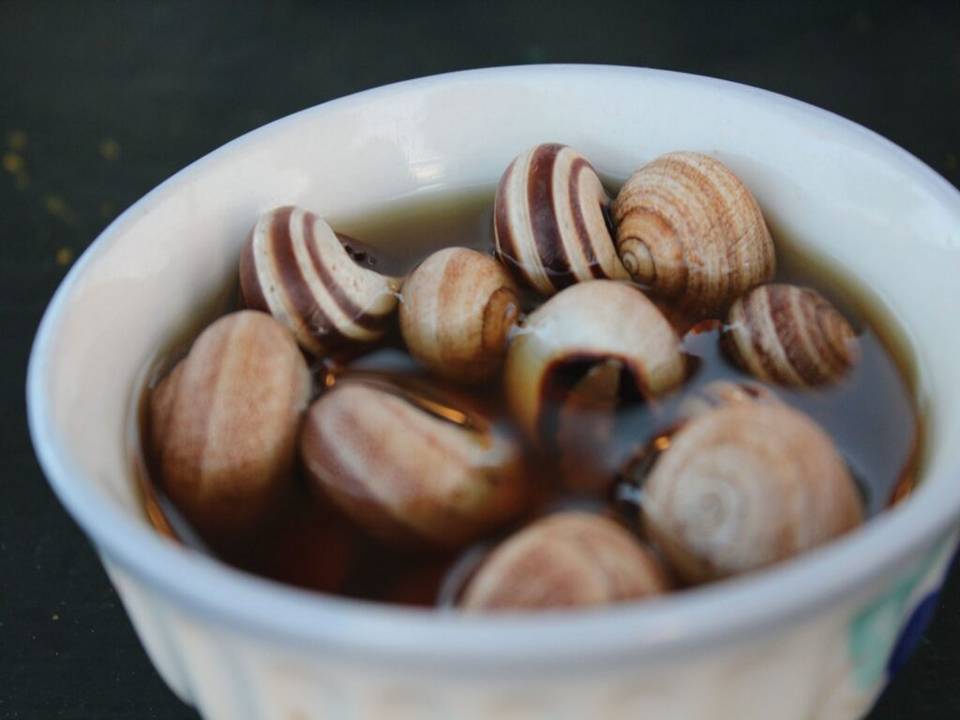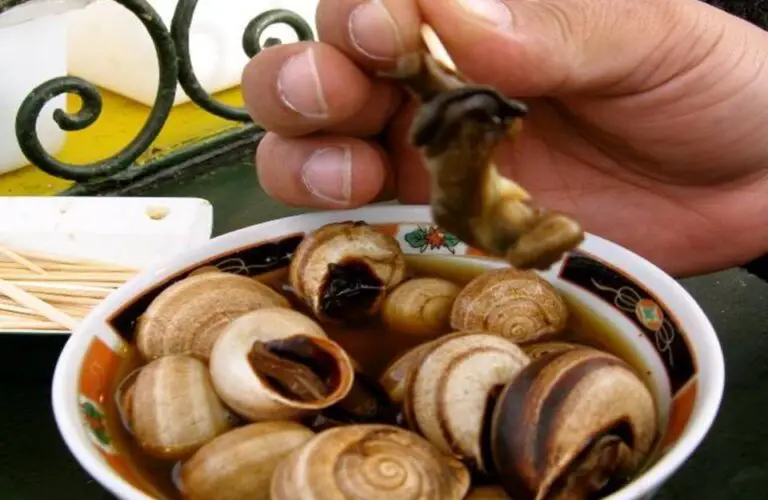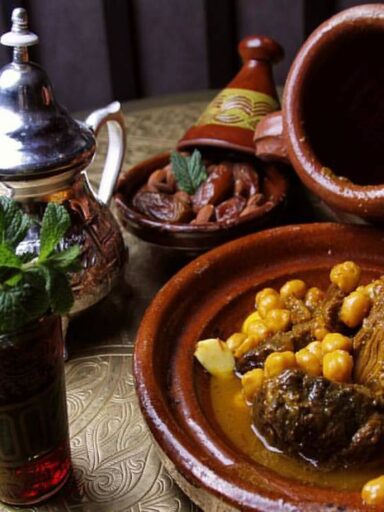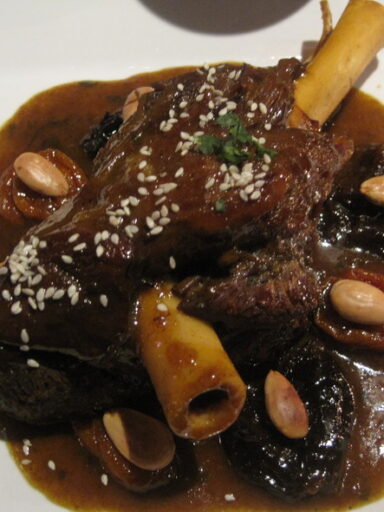Babbouche: Moroccan Snail Dish
Babbouche Moroccan dish made from snails is known for its rich, aromatic broth infused with herbs and spices. It’s especially popular as street food and is commonly enjoyed during the colder months, as it is believed to have warming and medicinal properties.
The snails used in Babbouche are typically land snails, harvested from the wild or specially farmed. They are cleaned thoroughly, sometimes soaked in water with flour to help purge any impurities. Once prepped, they are slow-cooked in a flavourful broth for several hours.
The Secret it’s in the Broth
The heart of Babbouche lies in its broth, made with a blend of spices unique to Moroccan cuisine. The key spices include ras el hanout (a traditional mix of up to 30 spices) and ingredients like fennel seeds, anise, thyme, licorice root, cumin, and bay leaves. These herbs give the dish its distinct aromatic and slightly spicy flavour, which complements the

natural taste of the snails. The broth is often simmered for a long time to ensure that all the spices release their full flavour, and the snails are tender and flavourful.
Served in Small Bowls with Plenty of Fragrant Broth
In Morocco, Babbouche is typically served in small bowls with plenty of fragrant broth. Eating it is an interactive experience: diners use toothpicks to extract the snails from their shells and then sip the broth afterwards. Some also drink the broth on its own, as it’s believed to have digestive and health benefits.
A Unique Dish in Moroccan Culture
Babbouche is a unique dish in Moroccan culture that reflects the country’s rich culinary traditions and use of spices. It’s often enjoyed in bustling markets and street corners, where vendors serve steaming bowls to locals and tourists alike. For the adventurous eater, it offers a taste of Morocco’s bold flavours and centuries-old cooking techniques, making it a must-try dish for anyone exploring Moroccan cuisine.
Babbouche (Moroccan Snail Dish) Recipe
Babbouche is a delicious, aromatic Moroccan snail dish, often sold as street food. Here’s how you can make this traditional dish at home.
Ingredients:
1 kg (2 lbs) fresh land snails, thoroughly cleaned
2 litres (8 cups) water
1 tbsp fennel seeds
1 tbsp anise seeds
1 tsp cumin seeds
2 bay leaves
1 cinnamon stick
1 tbsp licorice root (optional)
1 tbsp dried thyme
5 cloves garlic, crushed
1 tsp black peppercorns
1 tsp ras el hanout (Moroccan spice blend)
Salt, to taste
Lemon slices (optional, for serving)
Instructions:
Clean the snails:
Place the snails in a bowl of water with a bit of flour or cornmeal. Stir to help remove impurities, then drain. Rinse several times with fresh water until the snails are clean.
Soak the snails in salted water for a couple of hours to purge any remaining dirt. Rinse thoroughly again.
Prepare the broth:
In a large pot, add the 2 litres of water.
Add fennel seeds, anise seeds, cumin seeds, bay leaves, cinnamon sticks, licorice root, thyme, garlic, black peppercorns, ras el hanout, and a generous pinch of salt to the water.
Stir the mixture and bring it to a boil over medium-high heat.
Cook the snails:
Once the broth is boiling, add the cleaned snails to the pot.
Reduce the heat to low and cover the pot. Let the snails simmer in the spiced broth for 1 to 2 hours or until tender and fully infused with the flavours.
Serve:
Once cooked, remove the pot from the heat.
Ladle the snails and broth into small bowls.
Serve with toothpicks for pulling the snails out of their shells, and lemon slices for squeezing over the snails if desired.
Tips:
The broth is just as important as the snails in this dish. Feel free to adjust the spices to your liking.
Drinking the spiced broth after eating the snails is a common and flavourful tradition.
Enjoy your taste of Morocco with this comforting and spicy Babbouche dish!



